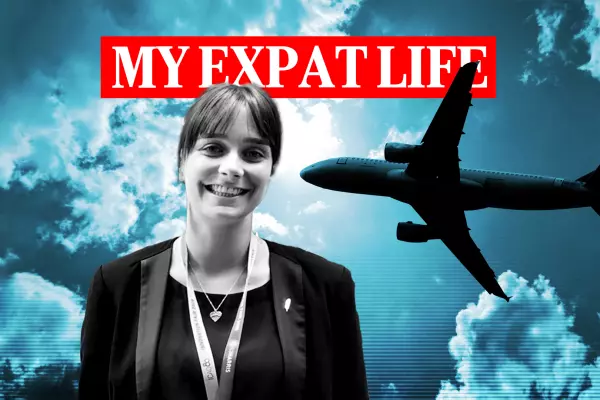It is difficult to believe that 25 years ago, Eric Watson was a relatively low-profile businessman. He worked as a sales rep for Whitcoulls in Christchurch before moving to Auckland, joining Xerox and then taking control of Blue Star in 1992. Under Watson’s stewardship, the office supplies company went on a massive buying spree, which included Whitcoulls, U-Bix Business Machines, Wang New Zealand and PC Direct.
Watson sold Blue Star to Washington DC-based U.S. Office Products (USOP) in mid-1996 but continued as chief executive.
The businessman’s first major clash with a market regulator was in relation to his personal share trading in McCollam Printers when he was Blue Star’s CEO.
McCollam Printers negotiations
McCollam Printers (MPL) listed on the NZX in Dec 1994, with the wider McCollam family having a 38% interest. The directors were Brian Allison (chairman), Steve McCollam, Andrew Harmos and Jonathan Hislop.
In mid-Nov 1996, Blue Star, with USOP now in full control, decided to make an offer for MPL. Watson and chief financial officer Maurice Kidd were given the responsibility to negotiate a deal with McCollam family interests.
A draft letter of intent to acquire MPL was sent to the McCollam family on Nov 22, 1996. The letter included a confidentiality provision, which prevented the disclosure of the proposed acquisition to third parties.
A takeover bid would be successful only if the McCollam family was willing to accept the offer.
Negotiations continued through March 1997, but Watson became frustrated with the slow progress.
However, the offer was resuscitated when the McCollam family agreed to accept USOP shares instead of cash.
On May 16, 1997, a meeting was held between the McCollam family interests and Blue Star where the former majority shareholder agreed to accept $3 worth of USOP shares for every MPL share while the remaining shareholders would be offered $2.75 cash per share.
McCollam Printers was informed of this offer at 4.55pm that day and 10 minutes later made an announcement to that effect to the NZX.
We don’t know what the McCollam family did with their USOP shares but the US company acquired more than 200 small companies around the world. USOP’s roll-up strategy was unsuccessful, its share price plunged to just 5 US cents and the company filed for bankruptcy in 2011 with assets of US$1.38 billion and liabilities of US$1.35b.
Watson’s share trading
The Securities Commission undertook an inquiry into the trading of McCollam Printers shares prior to the May 16 takeover announcement.
The regulator discovered that Watson and associated parties owned 2,363,000 MPL shares, representing 9.96% of the target company, when the takeover was announced.
These had been purchased between Oct 23, 1996, and up to a few hours before the takeover announcement was made on May 16, 1997, when Watson bought 398,000 MPL shares through Seahunter Investments at $2.36 each.
The commission wrote: “Throughout the period Eric Watson was negotiating on behalf of Blue Star and USOP he was acquiring an interest in MPL shares either for his own personal benefit or for the personal benefit of associates.”
Watson’s associates were Richard Johnston and Craig Joynt.
The former, who was a partner in the Auckland chartered accounting firm Brown Woolley Graham, had been Watson’s accountant, financial adviser and close friend since 1987 and had also been Blue Star’s company secretary. Joynt, who was Johnston’s brother-in-law, had been a director of several Blue Star companies.
Watson told the commission he decided to buy MPL shares “on the basis that he simply liked the look of the company”. He said that Johnston, Joynt and himself agreed that the first 4.99% of the MPL shareholding would go to Watson and everything after that would be held by Johnston and Joynt in the proportions that they agreed.
Between Oct 23, 1996, and March 24, 1997, Watson, Johnston and Joynt bought and sold MPL shares and on the latter date held 640,400 shares, representing 2.7% of the target company.
They then made the following purchases between late March and mid-May 1997:
- On March 27, Seahunter bought 800,000 McCollam Printers shares at $2.60 each.
- On April 28, Seahunter purchased 500,000 MPL shares at $2.40 each.
- On May 16, just hours before the takeover bid was announced to the NZX, Seahunter acquired 398,000 MPL shares at $2.36 each.
Seahunter was registered in the British Virgin Islands but seemed to operate out of Hong Kong. The Securities Commission believed that Seahunter was owned or controlled by Eric Watson and Richard Johnston.
398,000 MPL shares on May 16, 1997
Watson told the commission that he received an unsolicited call from a broker at 2.30pm on May 16, just two hours and 35 minutes before the Blue Star bid for MPL was announced to the market. The broker was looking to sell 398,000 MPL shares on behalf of a client.
Watson agreed to purchase the shares, on behalf of Seahunter, and a schedule of Watson’s share-trading activity showed that the 398,000 shares were transferred to Johnston and Joynt on May 16. However, in written evidence to the commission, Johnston stated that the 398,000 shares had been acquired “at the instructions of, and on behalf of, private interests of Mr Eric Watson”.
The commission concluded that the MPL share purchases by Seahunter on March 27, April 28 and May 16 were primarily funded by Cullen Investments, Watson’s private investment vehicle.
The commission’s hearings were characterised by contradictory evidence from many of the key participants.
Wrap-up
It is important to note that the McCollam Printers share-trading activity occurred during a period when New Zealand regulations were notoriously inadequate and, as a consequence, enforcement was weak.
The regulations in 1997 determined that an insider was a person who was involved with a public issuer or received inside information from a public issuer. Blue Star was not a public issuer, it didn’t do due diligence on McCollam Printers, nor did the McCollam family communicate any inside information regarding the NZX-listed company to Watson or Blue Star.
The fact that Watson was involved in discussions with the McCollam family regarding a proposed acquisition was not considered to be relevant as far as insider-trading regulations were interpreted by the regulator at the time.
The commission had this to say about the failure of Watson, Johnston, Joynt or Seahunter Investments to make any substantial security holder disclosures:
“It is the Commission’s opinion that a question of serious breach of the law on substantial security holder disclosure arises in relation to the trading in the shares of MPL. In the view of the Commission there are certainly reasonable grounds to suspect at the time Eric Watson was either the beneficial owner of all the shares (with Richard Johnston and Craig Joynt acting as his agents or nominees) or that the three of them were acting together.
“The Commission considers a notice should have been given when 5% was reached (on 27 March 1997). The Commission considers a notice should have been given in respect of subsequent acquisitions of 1% or more. In the circumstances of the Blue Star takeover that was under negotiation at the time, a substantial security holder notice would have had profound interest so far as the market was concerned. The matter was undoubtedly material.”
It is interesting to contemplate whether Eric Watson would have had a totally different business career if the Securities Commission had adopted a more proactive enforcement approach towards the McCollam Printers share-trading issue.
The US Securities and Exchange Commission (SEC), which had far more teeth than the NZ regulator, took an interest in the McCollam Printers case because Watson was also President of USOP’s international division.
The SEC decided that Watson had violated the Exchange Act because he failed to disclose the purchase of MPL shares to USOP and the subsequent sale of most of these shares when Blue Star “stood in the market” for McCollam shares.
The SEC noted: “Although Watson and his associates owned more than 300,000 shares in McCollam at the time he recommended McCollam to USOP as a takeover candidate, he failed to disclose this fact to USOP”.
Watson and his associates continued to purchase MPL shares but, according to the SEC, “none of these transactions was made in Watson’s name. Instead, Watson’s purchases were conducted through corporate nominee accounts, including foreign accounts, which he owned or controlled at several different brokers”.
USOP told the SEC that it would have immediately shut down the MPL negotiations if it was aware that Watson had purchased shares in the NZX listed company.
The US regulator concluded: “Even though Watson is a New Zealand citizen and his purchases and sales of MPL shares occurred in New Zealand, Watson engaged in conduct that had the effect of defrauding a US issuer and its shareholders”.
In November 1998, Watson deposited $680,704.99 into a fund – without admitting fault – that would be distributed to MPL shareholders that sold their securities to Watson and his associates.
The SEC noted on October 15, 2001 that “Most of these funds have already been distributed. Any remaining funds not claimed by former McCollam shareholders will be distributed to charity”.
Disclosure of interests: Brian Gaynor is a non-executive director of Content Limited, the publisher of BusinessDesk, and of Milford Asset Management.














